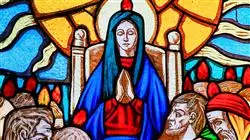University certificate
The world's largest faculty of humanities”
Description
The complete study of the current reality of the church and Christian beliefs analyzed through critical tools and the developments of Practical Theology ”

Practical Theology is usually the area of study for students who wish to develop in pastoral ministry, as missionaries and others in vocational ministry.
These areas of work include segments on social justice, church growth, church administrative bodies, and spiritual specialization, among others.
Its importance for Theology students, or related branches, lies in the practical approach to the knowledge found in the teachings of the Bible. That is to say, it tries to provide the basis to integrate these teachings into everyday life.
In this professional master’s degree, TECH takes students on a journey through the foundations of essential knowledge in Theology, including the study of the most relevant texts as an essential basis for work and professional and personal growth.
This knowledge will be complemented by the study of the Theology of grace and morality in its most relevant fields.
A necessary, clear and complete path that will allow you to act according to the teachings of the Bible or to analyze reality from its point of view.
If students want to excel, achieve a positive change on a personal level, relate to the best and belong to the new generation of professionals capable of working anywhere in the world, this may well be the path for you.
A professional master’s degree that is fully compatible with other work, personal, teaching or study occupations. Its system and teaching approach will flexibly adjust to student needs from beginning to end throughout the program. Consequently, the results are much more efficient since the study will not become an unbearable burden, but rather, a stimulating and easy challenge to undertake and bring to fruition.
A professional master’s degree that will allow you to acquire the theoretical foundations and practical tools necessary in Practical Theology ”
This professional master’s degree in Practical Theology contains the most complete and up-to-date academic program on the market. The most important features of the program include:
- Practical cases to apply the theoretical content to real life situations
- The graphic, schematic, and practical contents with which they are created provide scientific and practical information on the disciplines that are essential for professional practice
- Practical exercises where the self-assessment process can be carried out to improve practical learning
- All of this will be complemented by theoretical lessons, questions to the expert, debate forums on controversial topics, and individual reflection assignments
- Content that is accessible from any fixed or portable device with an Internet connection
This professional master’s degree in Practical Theology is a training program of exceptional quality that puts at your service the expertise of a first-rate university”
This TECH professional master’s degree is the most innovative, creative and unique proposal, offered by a dynamic institution full of talent and international recognition; a space where ideas, experience and reflections can be exchanged. Students will be able to share their learning experience, through forums and other collaborative tools, all 100% online.
Students will be supported at all times by an involved and committed faculty. The teaching team transmits their expertise in their professional performance, working from a real, lively and dynamic context. But, above all, the program explores the critical side, the ability to question things, problem-solving competence, and interpersonal skills.
The most up-to-date and safest way to expand your knowledge in this field, from your own computer and with total quality guarantee"

Study with the best resources in the technological era, the best teachers and the most comprehensive syllabus"
Objectives
With this professional master’s degree, students will be walked through the essential contents in the approach of this discipline, learning to undertake analyses, dissertations, presentations, debates or publications related to the subject matter, with the support of the most comprehensive knowledge. A professional master’s degree to learn while enjoying the benefits of a specialization program designed to optimize work time to the maximum.

Our goal is to provide you with a new learning experience that will lead you to achieve your professional goals with total assurance and confidence”
General Objectives
- Provide the necessary context, ideas and perspectives that will enable students to understand the character of Theology
- Present the historical and epistemological configuration of Theology as a science
- Justify the recourse of Theology to its sources
- Demonstrate the basic skills to access the instruments to study Theology
- Present an overview of the various branches of study of Theology
- Frame fundamental theology as a specialized part of the discipline that seeks to understand the mystery of God in its totality
- Explain the formal theological principles involved in the theological reading of Sacred Scripture: canonicity, inspiration and inerrancy
- Explore the main historical and geographical elements that serve as an aid to the study of the Bible
- Propose hermeneutical principles to properly understand the Bible
- Identify the places and events referred to in Sacred Scripture
- Review different versions of the Bible
Specific Objectives
Module 1. Introduction to Theology
- Provide the necessary context, ideas and perspectives that will enable students to understand the character of Theology
- Present the historical and epistemological configuration of Theology as a science
- Justify the recourse of Theology to its sources
- Demonstrate the basic skills to access the instruments to study Theology
Module 2. History of Salvation
- Recognize the fact of divine revelation
- Describe the historical, cultural and religious framework in which the divine revelatory action took place
- Show how Scripture presents the history of humanity in a linear sense and not in a cyclical process
Module 3. Introduction to Sacred Scriptures
- Explain the formal theological principles involved in the theological reading of Sacred Scripture: canonicity, inspiration and inerrancy
- Explore the main historical and geographical elements that serve as an aid to the study of the Bible
- Propose hermeneutical principles to properly understand the Bible
- Identify the places and events referred to in Sacred Scripture
- Review different versions of the Bible
Module 4. Pentateuch and Historical Books
- Explain the structure and content of the Pentateuch
- Discuss the approaches from historical criticism to the Pentateuch to its training
- Comment on the value of the Pentateuch and the historical books in relation to the Christian reading of their texts
- Relate the content of the Pentateuch to the rest of the biblical message, to the most important schools of current and historical theological interpretation, and to scientific thought
- Trace the development of salvation history through the whole period under consideration in order to understand God's action on His people at every moment
Module 5. Psalms and Wisdom
- Explain the theological content of the book of Psalms and wisdom literature
- Indicate the historical, social and religious context of the Psalms and wisdom literature
- Explain the value and meaning of the Psalms and wisdom literature for the life of the people of Israel and Christianity today
- Value the importance of reading the Book of Psalms and wisdom literature for the process of personal and community growth in the contemporary practice of faith
- Be aware of the importance of the Book of Psalms and Wisdom Literature in the evangelizing work of the church
Module 6. Prophetic Books
- Explain the constitutive metaphysical principles of being in the static sense
- Explain the transcendental properties of being
- Explain the categories of being by pointing out their operative nature in examples of everyday experience
- Explain the analogy of being, pointing out its operative nature in examples of everyday experience
- Analyze everyday reality to highlight metaphysical principles
Module 7. Synoptic Gospels and Acts of the Apostles
- Recognize the literary genre of the Gospel in its first synoptic form
- Understand the contexts that generated its production
- Analyze the main theological themes that emerge from it
- Analyze the text of the Acts of the Apostles
- Discuss the different hypotheses that have been presented throughout history regarding the synoptic problem and the historical problems in the book of Acts
Module 8. Johannine Corpus
- Be knowledgeable of and familiar with St. John and his writings
- Delineate the historical, literary and theological characteristics of Johannine literature
- Explain the major themes and the theological and pastoral relevance of Johannine literature
- Acquire the ability to read and understand the texts of St. John
- Acquire the ability to synthesize and structure the contents of Johannine literature in order to disseminate them verbally and in writing
Module 9. Pauline Corpus
- Present a panoramic vision of the historical moment of the contemporary period
- Present a panoramic vision of the philosophical reflection of the contemporary period
- Indicate the dominant themes of the period in which contemporary philosophy emerges
- Recognize and study some relevant authors, influences and links
- Show the bases that the movements of contemporary philosophy have established in order to further knowledge
Module 10. Hebrews and Catholic Epistles
- Be knowledgeable of and familiar with the Epistle to the Hebrews and the Catholic Epistles
- Delineate the historical, literary and theological characteristics of the Epistle to the Hebrews and the Catholic Epistles
- Explain the main themes and the theological and pastoral relevance of the Epistle to the Hebrews and the Catholic Epistles
- Acquire the ability to read and understand the Epistle to the Hebrews and the Catholic Epistles
- Acquire the ability to synthesize and structure the contents of the Epistle to the Hebrews and the Catholic Epistles in order to disseminate them verbally and in writing
Module 11. Patrology
- Explain the historical, literary and theological context of patristics
- Exemplify through relevant authors of different periods the historical, literary and theological context of patristics
- Know the basic periods in which the subject is divided: Apostolic Fathers, Apologists, Beginnings of Theology, Golden Age of Eastern
- and Western Patristics and the Final Period
- Demonstrate the influence of patristics on theological development
- Perceive the relationship between Patrology and other theological disciplines such as: Church History, Dogmatics, Ecclesiology, Sacraments and Liturgy, Sacred Scripture, Moral Theology, Spiritual theology, etc
Module 12. Theology of Grace
- Systematically present the theology of grace
- Explain its foundation in Sacred Scripture and the Tradition of the Church
- Recognize grace as an interaction of man with God
- Dialogue on the basis of grace with contemporary anthropological visions
- Debate in an argued way on contemporary immanentism and doctrine of grace
Module 13. Fundamental Morals I
- Explain the nature, object and sources of Moral Theology
- Master the arguments and concepts that allow us to understand and evaluate the main moral-theological schools of thought in the history of the Church
- Approach fundamental themes of Christian Moral Theology illuminated by Sacred Scripture and the Magisterium of the Church in order to assume in our behavior attitudes inherent to Christian duty
- Indicate the elements that interact in the moral conduct of Christians
- Present in a correct, orderly and reasoned manner the most important ideas of Fundamental Moral Theology
Module 14. Fundamental Morals II
- Explain the nature, object and sources of Moral Theology
- Master the arguments and concepts that allow us to understand and evaluate the main moral-theological schools of thought in the history of the Church
- Approach fundamental themes of Christian Moral Theology illuminated by Sacred Scripture and the Magisterium of the Church in order to assume in our behavior attitudes inherent to Christian duty
- Indicate the elements that interact in the moral conduct of Christians
- Present in a correct, orderly and reasoned manner the most important ideas of Fundamental Moral Theology
Module 15. Personal Morality I
- Theologically argue the meaning and moral dimension of human sexuality
- Value diverse behaviors in the morality of the person
- Debate the way contemporary humans live sexuality
- Analyze biblical, patristic, theological and magisterial texts in light of the moral dimension of human sexuality
- Form reasoned arguments on the ways contemporary humans live sexuality
Module 16. Personal Morality II
- Theologically explain the value, respect, promotion and defence of human life
- Morally evaluate the various interventions that are made in life
- Explain the ideology underlying the main forms of denial of fundamental life in any of its stages
- Solve clinical bioethics cases
- Form reasoned arguments on various approaches found in scientific journals and public opinion
Module 17. Social Morality
- Review human attitudes that contribute to the commitment to the search for the common good in order to contribute to the promotion of a climate of justice and peace in society
- Develop a greater ability to assess the social world in the light of faith
- Reflect ethically on social situations, institutions and social, economic and political systems
- Know the biblical, theological and magisterial tradition as a guide to understand social reality in the light of faith
- Form reasoned arguments about the diverse forms of social organization

Increase your capacity to work as a theologian with this complete professional master’s degree that will offer you the humanistic growth you need”
Professional Master's Degree in Practical Theology
This program brings together in a comprehensive way the updating, deepening and systematization of the most relevant aspects for specialized education and research in this area of knowledge, especially for the current context. With the Professional Master's Degree in Practical Theology you will have at your fingertips a high-level postgraduate course that will provide you with training at a professional level, as well as new skills and perspectives on theological studies and spiritual specialization. TECH Global University offers you a necessary, clear and updated review that will allow you to critically apply and transmit the teachings of the Bible and reality from their visions and ideologies.
Get a Professional Master's Degree on the knowledge of God and the church
The main objective of this program is to deepen the knowledge of students in this specific vision of the branch of Theology so that they can enter this world and perform with mastery. In this sense, the study plan will offer modules that will focus on various topics, such as the introduction and basic concepts of this discipline and the study of the sacred scriptures, the history of salvation, the historical and prophetic books, among others. Thus, after completing this course, you will have at your disposal a comprehensive preparation that will allow you to apply the skills acquired for the analysis of Christian theological beliefs in the different spectrums it covers both in the modern world and in everyday life. Thus you will be able to practice in the different areas of your profession, from social justice, the teaching of the bible, to the administrative bodies of the church and take your professional profile to another level.
Specialize in the largest digital university in the world
At TECH Global University we offer you a high academic level program designed especially for you. With the accompaniment of experts in the area, innovative methodologies focused on online learning and a specific curriculum, you can access the best educational materials from anywhere and device at your disposal. In this way, you will have at your fingertips new skills that will allow you to perform better in vocational ministry and teach lessons effectively on the teachings of the Bible and practical theology.







